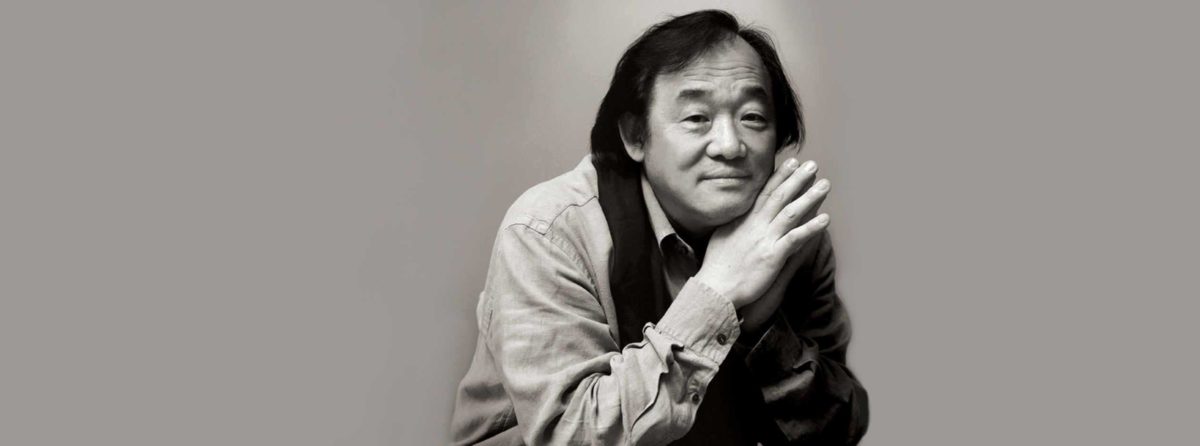It took me much too long to write this post, but as they say ‘better late then never’. On December 10th, I was – like almost every week – at Lincoln Center. Beethoven’s 3rd piano concert, which is among my favourite 25 or so pieces in classical music, was to be played by Kun-Woo Paik in the 70-year-olds first performance with the New York Philharmonic. I was in the company of my girlfriend, another rather critical lover of classical music and both of us were looking forward to a wonderful performance, although we didn’t expect anything out of the ordinary. On the program were Janáček’s House of the Dead Overture, Beethoven’s Piano Concerto No. 3 and Dvořák’s Symphony No. 6.
Arriving in typically late fashion, we rushed to our seats. The conductor came on stage to applause and started – unusually – speaking into a microphone. He mentioned the upcoming concert at the United Nations, which would be performed by the New York Philharmonic and then pointed out the Secretary-General Ban Ki-moon who sat with us in the middle of the audience. This reminded me of the fact that he would step down, as planned, at the end of the year and let my thoughts wander off into a political year-in-review. As the Economist concluded recently
For a certain kind of liberal, 2016 stands as a rebuke. If you believe, as The Economist does [and I do, too], in open economies and open societies, where the free exchange of goods, capital, people and ideas is encouraged and where universal freedoms are protected from state abuse by the rule of law, then this has been a year of setbacks.
For most of Janáček’s House of the Dead Overture, I mentally reviewed 2016 – from Brexit to the election of Donal Trump over atrocities in Syria to the nationalist streams that are transforming Turkey, Poland, Hungary, … What would be next? Will Europe’s migrant crisis, which I wrote about earlier this year, sweep right-wing forces to power in Germany and France? Would the EU survive such a political earthquake? How will US-China relations develop under Donald Trump and how would a more confrontational politics influence the wider region?
Applause… Now it’s Beethoven. His 3rd piano concert was first performed on April 5th 1803 with Ludwig van Beethoven himself as the soloist. This was a time of great optimism and a little less than 50 years before Victor Hugo would address the International Peace Congress. The strings start introducing the C minor theme in the 1st movement, Allegro con brio. As the strings introduce the second theme, moving into the relative major key, E-flat major, everyone is eagerly anticipating the piano to enter. This technique was perfected by Wolfgang Amadeus Mozart some 30 years earlier. In the Allegro of Mozart’s Concerto in A Minor, Op. 102 ‘Double Concerto’, for example, he allows the orchestra to assert its character with several contrasting themes, before the soloist enters. Finally, almost 4 minutes into the first movement, the piano enters majestically with scales echoing the previously introduced motif. Quietly shifting from C minor into D major, the piano now asserts itself centre stage, leading the orchestra.

The first movement is over and we are awaiting the first notes of the second movement, the Largo. This is one of the most famous pieces in classical music and also one of the most beautiful. I remind myself that it’s no coincidence that Beethoven provided the soundtrack to European unification some 200 years later with his Ode to Joy out of his 9th Symphony, which has become the official anthem of the EU. Barely a few minutes in, I was sure that this must be the best interpretation of the piece I had ever heard. Kun-Woo Paik, the South Korean pianist, played with incredible maturity and intent. As mentioned in earlier posts, I always admired the old-school pianists such as Horowitz or Rubinstein for their technique, yes – though this has surely also been mastered or surpassed by some contemporaries – but more importantly for their style of playing with much less showmanship. When watched on YouTube, it always seems so self-controlled and yet beautifully interpreted. Here is an interpretation of the Largo by Vladimir Ashkenazy:
Inevitably, another wave of sentimentality overcame me as the piece reminded me that 2017 would become the year, in which the EU and European peace would come under serious threat and that international collaboration was likely to have peaked early in my lifetime. I wondered if Ban Ki-Moon was having similar thoughts as he listened to one of the most beautiful pieces ever composed in the city of the United Nations, which paradoxically is now home to the first isolationist president since WWII.
In the break that followed the third movement Rondo. Allegro., everyone was still levitating. Queuing for refreshments, an elderly person turned to me and said what a rare performance this was. We agreed that Kun-Woo Paik’s interpretation was just perfect. A lack of sophistication in one’s playing can easily appear shallow but over-emphasis can likewise seem immature and pedantic. Listening to his playing was like listening to an eloquent sage who has the maturity to be sophisticated and the self-confidence to not be pedantic. I’m struggling with the analogies at this point but everyone agreed – this was a concert to be remembered. Hopefully, it will be for the timeless music and not for the end of 2016, the year liberalism was overturned.
